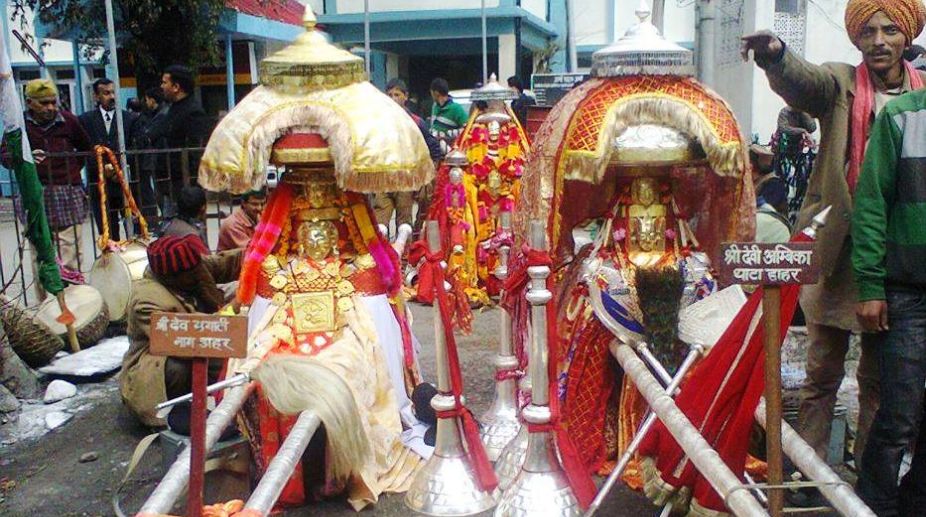Kangra to witness massive development: Himachal CM
Chief Minister Sukhvinder Singh Sukhu has said that Kangra district in Himachal Pradesh will witness massive development.

(Photo: SNS)
In this Himachal Pradesh town, popularly known as 'Chhoti Kashi', over 200 deities from hundreds of temples are congregating for the festivities of Maha Shivratri.
Though the Maha Shivratri will be celebrated by the country on Friday, the deities' gathering in Mandi will take place a day later.
Advertisement
The celebrations date back to 1526 when this town was founded during the rule of Ajbar Sen (1499-1534). He had 'invited' all the local deities to mark the founding of the new town.
Advertisement
A weeklong Shivratri fair will begin on Saturday. More than 200 deities have been invited to participate in the festivity, Deputy Commissioner Sandeep Kadam, the chief organiser of the festival said.
While Chief Minister Virbhadra Singh would inaugurate the festival, Governor Acharya Devvrat would join in the festivities on the last day on March 2.
On the first day of the festival, a procession led by Lord Madho Rai, an incarnate of Lord Vishnu and the chief deity, would be taken out in the town.
The assembled deities follow him in beautifully decorated palanquins, as per protocol, and assemble at the Bhutnath temple, dedicated to Lord Shiva, which was constructed in 1526.
Three such processions, locally called 'Jaleb', would be taken out on the opening, middle and concluding days of the fair, said an organiser.
Deity Kamrunag, the main guest, reached the town on Thursday along with hundreds of his devotees in a colourful procession amid beating of drums.
Mandi, located on the Chandigarh-Manali National Highway-21, is dotted with more than 80 temples built in typical hill architecture. The prominent temples are those of Bhutnath, Triloki Nath, Jagannath, Tarna Devi and Jalpa Devi.
"It's really a divine gathering here," Neil Daniel, a tourist from the US, remarked on seeing the assembled deities.
He said he has specially come to witness the unique divine and temporal aspects where every year a huge congregation of gods and goddesses takes place for days and this practice has been following for centuries.
The rulers of Mandi were devotees of Lord Shiva.
It is believed that ruler Ajbar Sen saw in his dreams a cow offering milk to the image of Lord Shiva. His dream turned into reality when he himself saw the cow offering its milk to the idol.
He then constructed a temple there in 1526 – the Bhutnath temple.
Simultaneously, the foundation of Mandi town was also laid and he shifted his capital here.
Ever since the rule of princely states came to an end, the district administration has been following the practice and inviting deities to the Shivratri festivities here.
The administration also offers an honorarium to the "kardars" – the attendants of deities – for participating in the festival.
Transactions worth millions of rupees are conducted during the festival. Kullu and Kinnauri shawls, handicrafts, carpets and dry fruits are a major attraction for the customers.
Advertisement